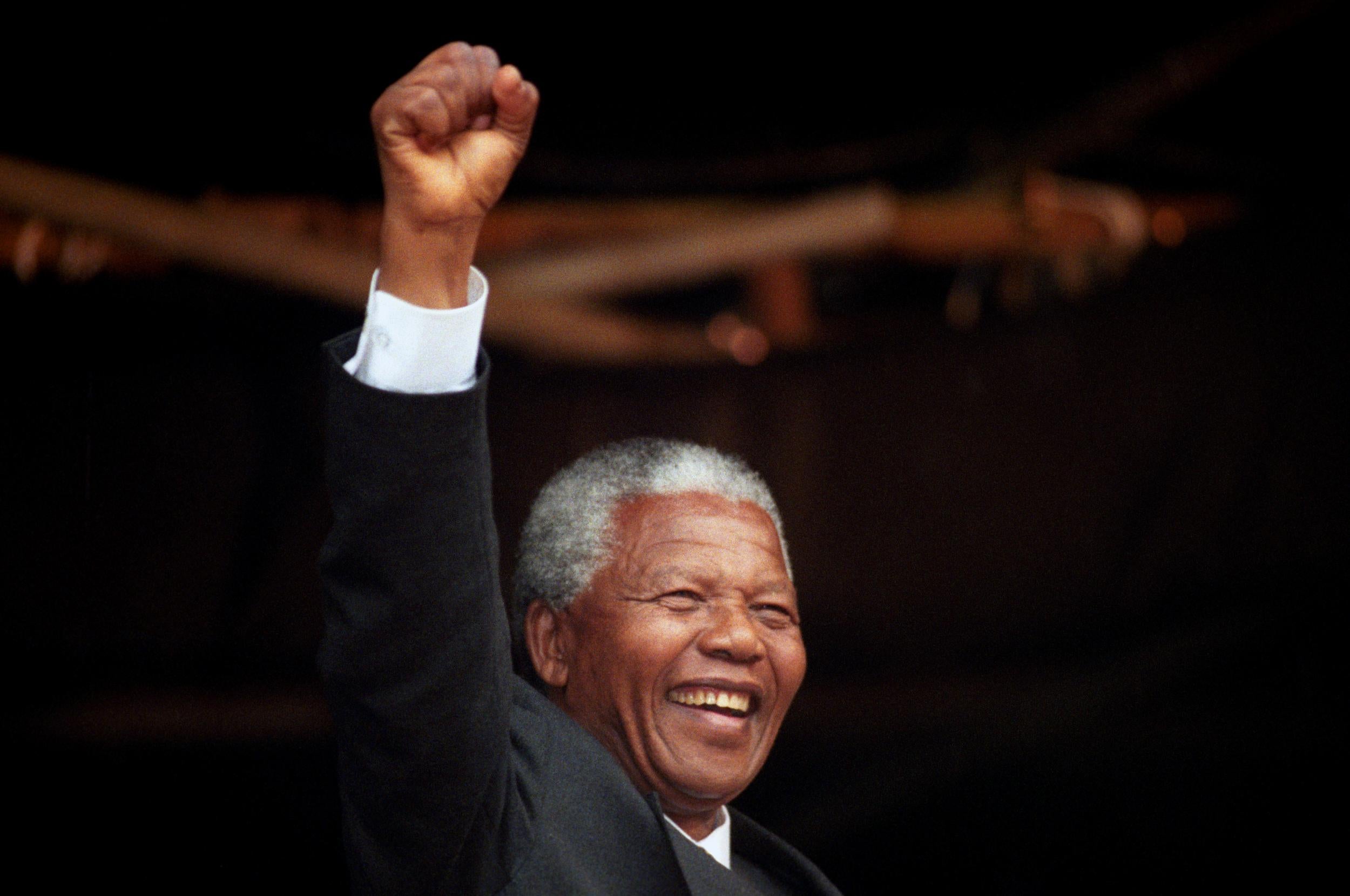The 30th anniversary of Nelson Mandela’s release reminds us of the need to compromise in politics
The South African leader knew that to succeed you sometimes need to climb down from things you had previously regarded as strategic, unchangeable and unthinkable, writes Paul Martin


It was a balmy afternoon on 11 February 1990, Nelson Mandela’s day of liberation. I rolled down the back window and stretched out an arm to have my hand slapped again and again by exuberant crowds lining the motorway.
We were in a slow-moving traffic jam from Nelson Mandela’s prison in Paarl to the centre of Cape Town about 30 miles away. The hundreds of thousands who had come out to get a glimpse of the country’s most famous prisoner (now an ex-prisoner) seemed unaware that their hero was not in the car. His silver BMW had diverted onto a back route.
It took Mandela’s security people half an hour to get him out his car, being rocked by well-wishers, and into the old Cape Town City Hall. From the building’s balcony he delivered a fluent and rousing speech – his first in public since, three decades before, he had told a court that “if necessary I am willing to die” for his country’s freedom and his people’s rights.
“Now is the time to intensify our struggle on all fronts,” Mandela urged the 50,000 supporters in the square in front of the hall. His remarks added to the nervousness of the country’s white rulers, who feared a mass uprising.
The real clue, though, to Mandela’s approach to dealing with and overcoming white supremacy came the next day when he met a small group of journalists in the gardens of Desmond Tutu’s elegant Anglican Church-owned mansion, Bishopscourt.
He was astonishingly relaxed and on-the-ball when I asked the leader what I thought was a straightforward question: “In your future negotiations with the apartheid regime what will your tactics be?” He answered: “In negotiations, it’s important that you make concessions on strategy, not tactics.”
I thought he had just got things the wrong way round: concessions can be made for tactical reasons but there could be no yielding on matters of strategic importance.
Later, I understood what he had meant: to succeed you sometimes need to climb down from things you had previously regarded as strategic, unchangeable, unthinkable. That approach was why a seemingly impossible deal came within reach. It took tortuous negotiations and four occasionally violent years for an agreement in principle to be hammered out.
The predominantly black African National Congress, under Mandela, even agreed to bring their old oppressors into government alongside them. Mandela and FW de Klerk had deservedly received the Nobel Peace Prize the year before.
I marvelled at Mandela’s skills as a wily politician – able to say the right things to the right audience. Running for that historic election in 1994, I heard him speak toughly one morning urging farmworkers to sweep him to power, then have afternoon tea and scones on a meticulously mowed lawn, with their highly suspicious white farmers – within minutes, they were lapping up his charm.
Another of his strategic masterpieces was bringing white people the international sporting involvement they had craved. During a Cape Town to Johannesburg flight a few days after Mandela’s release, I was lucky enough to be the only passenger sharing a business class cabin with the great man. I pulled out a photo from my bag and showed it to him. He was delighted: it was him as a young man in 1957, holding up his boxing gloves.
“Boxing – and sport in general – puts people on a level playing field,” he told me. Then he asked: “Can you help me get the whites on our side – through sport?”
During our several subsequent meetings, we discussed tactics (or maybe it was strategy) for using sport as a tool of reconciliation. He always seemed to agree with me but that, I now realise, was because he had already worked it out anyway – without needing my advice.
When his country won the Rugby World Cup in 1995, Mandela famously donned a South African green-and-gold jersey and danced on the pitch in Johannesburg with South Africa’s white rugby captain. The next day we met up at Mandela’s home, and he threw me an imaginary rugby ball. “You see, Paul,” he beamed, “it worked.” Then he clenched his fist and raised it skywards – just like he had done in the photo that I had shown him on our first plane journey.
“Amandla Awehtu Mayibuye i’Afrika!” (Power is ours. It will return to Africa), the ANC slogan of defiance, had become a reality. Decades of outright white racism were ended, yet changing a society and bringing education, jobs and true equality eluded the country’s first black president, let alone his vastly inferior successors.
Many disillusioned black people now say that Mandela, once in power, was too much in the pocket of white big business, and basked too much in overseas adulation while the poverty gap failed to narrow. They forget that it really was largely because of Mandela’s willingness to forgive, and his ability to compromise, that a bloodbath was averted in the first place.
Thanks to Mandela, South Africa is, for all its faults, a far better place today than when we drove behind him, excited but unsure, exactly 30 years ago.
Paul Martin is editor-in-chief of MediaZones.net and Correspondent.world
Join our commenting forum
Join thought-provoking conversations, follow other Independent readers and see their replies
Comments